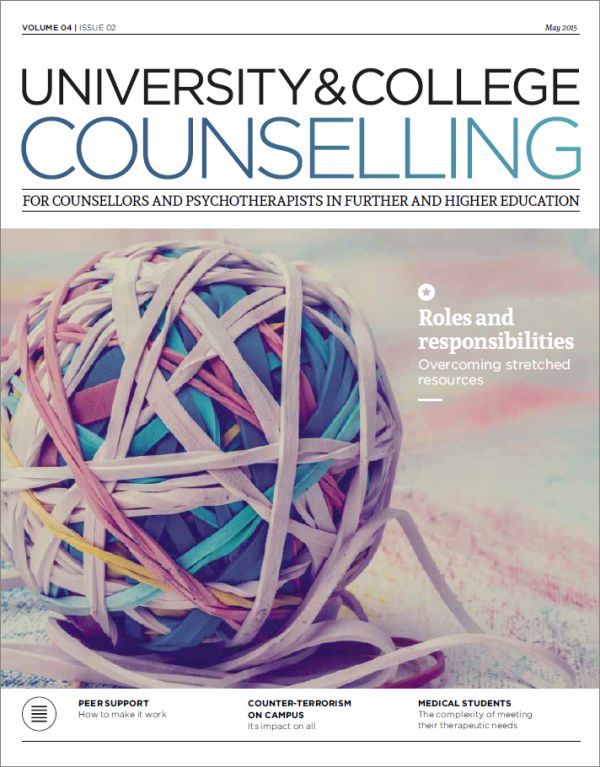In this issue
Features
Student mental wellbeing: whose responsibility?
Dr Ruth Caleb argues the case for government and senior management involvement
Counter-terrorism on campus: student or suspect?
Recent government legislation will have a severe impact on counsellors in education, states Peter Jenkins.
Plus: two college counsellors write of the effect on them and their work
No man or woman is an island (free article)
The benefits of student peer support can be huge, writes Anne Ford
What’s going on?
Thinking creatively helps work through therapeutic ruptures, states Jeremy Christey
There’s a superego stalking the corridors
John Taggart explores the particular pressures encountered by students of the healthcare professions
Divisional news

A pdf of this issue is available in the University and College Counselling archive
From the editor
The theme of this issue of the U&CC journal is responsibility. As a counsellor who practises outside of the sector, I have been struck by the ever increasing responsibilities being piled on those who work in universities and colleges. Not only is there the responsibility of offering the best short-term therapeutic approach to clients (see Jeremy Christey’s feature), there is also the responsibility of managing the expectations of the institution.
Yet this is often the conundrum; for it feels as if the institution can locate the responsibility for the wellbeing of its students solely within the counselling service. Ruth Caleb makes a persuasive argument for the mental wellbeing of students to be the responsibility of more than one department – and of senior management and government too.
Perhaps though, the most concrete change in responsibility since our last edition is the legislating of the Government’s Prevent programme.1 This is part of the overall Contest counter-terrorism strategy, and as Peter Jenkins states in his article outlining the impact of this legislation: ‘The implications for counsellors are immediate and severe.’ Two college counsellors have also written about how the immediate fall-out from the legislation is affecting their client work. Perhaps it is of no surprise that both report a parallel process occurring – in which they struggled to find the ‘right words’ to articulate the complex feelings that had been stirred: in them and in their clients. So this issue is about responsibility, but it is also about respect for you and the work you do.
Toni Rodgers
Editor
ucceditorial@bacp.co.uk
Reference
01. Her Majesty’s Government. Prevent duty guidance: a consultation. London: Her Majesty's Government; 2014.
